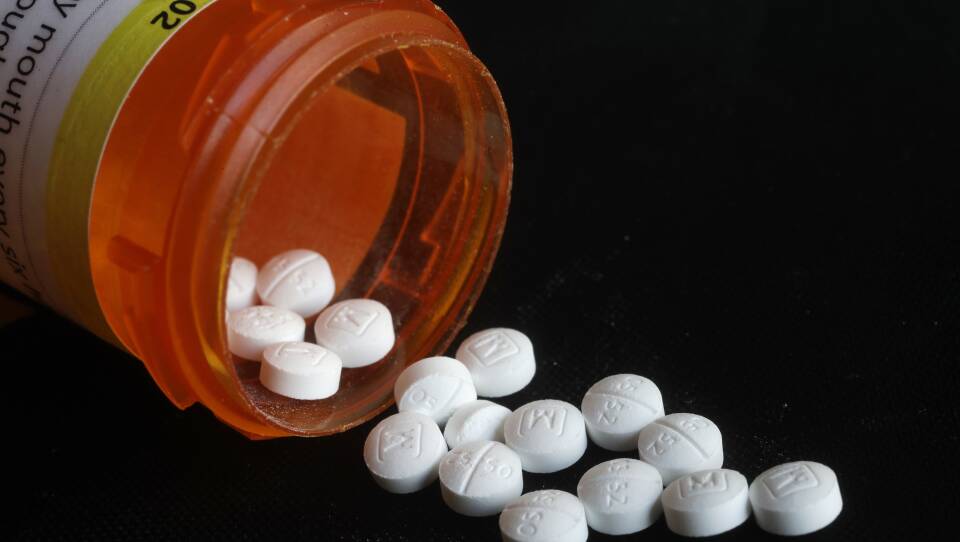For almost two months, executives from Insys Therapeutics have been on trial in Boston federal court. The pharmaceutical company allegedly bribed doctors to prescribe their opioid medication. As various sales representatives have taken the stand, the trial has raised questions about the pharmaceutical industry and its marketing practices. WGBH Radio’s Gabrielle Emanuel has been following the trial and spoke with WGBH All Things Considered anchor Barbara Howard. This transcript has been edited for clarity.
Read more: Insys Trial Raises Questions About What Drug Sales Reps Can And Cannot Do
Barbara Howard: So tell me, is there any way for patients to find out about their own physician, whether they've been taking money from drug companies?
Gabrielle Emanuel: Yes, so there are two things to do. The first is that many big academic medical centers have policies about how their doctor interacts with a pharmaceutical company, and these are often stricter than the code of conduct that's put in place by the trade group for pharmaceutical companies. And there's actually been a study that looked at these policies, including places right here — including big academic medical centers at Boston University, University of Massachusetts, Tufts — and what they found is when you limit access of drug reps to these physicians, prescribing for those products go down. But the caveat is that at big academic medical centers, these policies vary a lot from department to department. And the other issue is, a lot of people go to doctors who are in private practice, so it doesn't apply to them.
The second thing you can do is, there's a database that was created by Obamacare and it's a free online resource that's called Open Payments Data. It's maintained by the federal government and it's actually really easy to use. You just go on it, type your doctor's name in, and then you can see if they've gotten any money from drug companies. If so, when, how much, and where it came from — did they get a free meal? Did they get travel paid for? Did they consult for the company?
Howard: And again, what is that thing called?
Emanuel: It's called Open Payments Data.
Howard: So you can just Google that and find that?
Emanuel: Exactly, yeah. And unfortunately, Obamacare hasn't been around that long, so the data doesn't go that far back, just a handful years. But they've already documented $33 billion changing hands from pharma to physicians and hospitals.
Howard: Well, we're talking about drug marketing and drug sales. So what does this mean in terms of the ever-increasing cost of health care in the country?
Emanuel: So this is one contributing factor. Drug companies spend a lot on marketing and getting patients to buy name branded drugs instead of an identical generic. That drives up the health care costs for everyone. I spoke to one guy, Mike Courtney. He's a former sales rep for places like Johnson & Johnson and Pfizer. He said he believes in the role that drug companies play in educating doctors, but at the same time, he was alarmed by what he was seeing. Courtney said, “All of a sudden, I looked at a monthly cost of the product that I was promoting and it started out at like $400 a month. And then a year later it's $500, then before you know it, it's $700, then $900. And then it's $1,200 a month like four years later. And honestly, I got thinking to myself, like, 'What has changed with the product? What is this all about?'”
Emanuel: Courtney concluded what it's all about is money. So now he does something pretty unusual. He's gone to work for an insurance company called Capitol District Physicians Health Plan, it's in New York. And insurance companies have an incentive to keep costs down, and they are using drug reps' skills and strategies to promote generic drugs and cheaper alternatives. They go around to doctors and do the exact same thing that they would if they were promoting a specific brand name drug. And Courtney told me now he sleeps better at night. But again, this is unusual and he is outnumbered by drug reps who are working for big pharma. I should say that academics who study this and are worried about drug marketing say that doctors really shouldn't be relying on any source that has a financial incentive in what drugs they're prescribing.
Howard: That's reporter Gabrielle Emanuel talking about financial incentives when it comes to prescribing drugs. This is WGBH Radio's All Things Considered.





